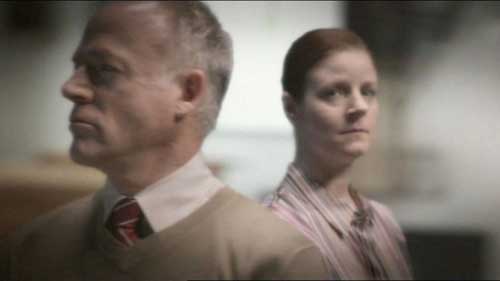Peter York On Ads
Leave off the mysticism, Orange, and go back to the future

Your support helps us to tell the story
From reproductive rights to climate change to Big Tech, The Independent is on the ground when the story is developing. Whether it's investigating the financials of Elon Musk's pro-Trump PAC or producing our latest documentary, 'The A Word', which shines a light on the American women fighting for reproductive rights, we know how important it is to parse out the facts from the messaging.
At such a critical moment in US history, we need reporters on the ground. Your donation allows us to keep sending journalists to speak to both sides of the story.
The Independent is trusted by Americans across the entire political spectrum. And unlike many other quality news outlets, we choose not to lock Americans out of our reporting and analysis with paywalls. We believe quality journalism should be available to everyone, paid for by those who can afford it.
Your support makes all the difference.You may be fretful about teenage stabbings – and a friend had one happen outside her door last night. But all I can say is that it isn't very common in Barnes or the nicer parts of Harrogate yet. You may also be worried about weird American financial poison from sub-prime derivatives getting into your account at the Dorking branch of the Suburban Provincial bank, established 1846. And here it's getting nearer home because strange unseen links do connect the hyper-dull world of UK High St money and the hyper-hyper one of hedge fund boys in Mayfair and Masters of the Universe on Wall Street. In the process of cheating poor Americans into houses they couldn't afford and then passing the parcel worldwide, they've reduced the value of your pension, your savings and your house.
But worse, because it's practically universal, is the world domination conspiracy Nicholas Carr described in last Friday's 'Independent'. Put simply, the interweb, as we fashionable people call it, is stealing our brains. Particularly Google. The Google people, who may or may not turn out to be green lizards (and how people laughed at poor David Icke), have been giving us nuggety bits of information at tremendous speed, leaving impressionable young people thinking they're omniscient (my friend's nine-year-old says "Google knows that").
But in return they are infiltrating our minds. People who are keen on books, and grew up on them, find they can't eat a whole one now because their neural pathways were redrawn while they were sleeping. They're surfing and skimming, ducking and diving and linking all over the place. They know lots of bitty things but find the messages self-destruct after a few weeks, leaving them ever more dependent on a much bigger memory than theirs. It's what people used to call Orwellian.
The three key 20th century businesses – investment banking, IT and electronic entertainment – were overwhelmingly American and the world's intelligentsias have long felt fretful in the battle of the brainwaves, and a little paranoid. The Google onslaught is better than a knock on the door in the middle of the night or being shot in your own hallway in the 21st century Moscow manner – but they're convinced it'll end the same way.
One thing that gets this group going is the replacement of traditional campaigning with hard objectives – universal suffrage, the abolition of slavery, where no one knew how to recruit a commercial sponsor or find a make-up artist to save their life. But campaigning now has to be warm and woolly, linked and sponsored, with big, diffuse objectives that you can wear as a wristband.
There's a new generation of TV ads with this warm, universalist, 'make the world a better place' quality. And the sector which uses it most is IT and its kissing cousin, mobile telephony. The new Orange commercial is so High Concept, you want to put a philosopher on the case ("is this Pantheism?). And as an art installation it would be called "I Can Be Everybody".
The voiceover – English, drabbed-off RP – is saying he's everyone he's ever known. His mum, his sister. The girl still in Thailand, his best friend from school, his bosses, this bloke he met somewhere who taught him to play the guitar.
It's a Gap and gap-year life of young white hetero' middle-classness, enjoying a Big Idea with mildly mystical overtones – the more you contact people, the deeper you get – sponsored by a French-owned mobile and broadband provider.
Nineties people – when they can remember anything – say they much preferred "the future's bright – the future's Orange".
Join our commenting forum
Join thought-provoking conversations, follow other Independent readers and see their replies
Comments